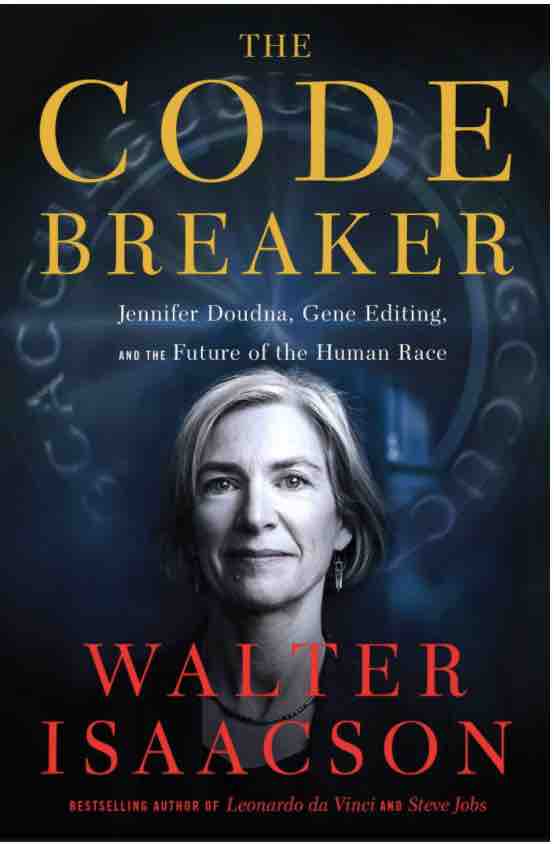Walter Isaacson
in conversation with Doris Kearns Goodwin
Walter Isaacson
in conversation with Doris Kearns Goodwin
at Live Talks Los Angeles event on March 16, 2021
discussing his book,
“The Code Breaker: Jennifer Doudna, Gene Editing, and the Future of the Human Race”
Walter Isaacson, a professor of history at Tulane, has been CEO of the Aspen Institute, chair of CNN, and editor of Time. He is the author of Leonardo da Vinci; The Innovators; Steve Jobs; Einstein: His Life and Universe; Benjamin Franklin: An American Life; and Kissinger: A Biography, and the coauthor of The Wise Men: Six Friends and the World They Made. He is a host of the show Amanpour and Company on PBS and CNN, a contributor to CNBC, and host of the podcast Trailblazers, from Dell Technologies. He appeared at Live Talks Los Angeles in conversation with Michael Lewis for his book on Leonardo da Vinci. (watch the video)
Doris Kearns Goodwin’s interest in leadership began more than half century ago as a professor at Harvard. Her experiences working for LBJ in the White House and later assisting him on his memoirs led to her bestselling biography Lyndon Johnson and the American Dream. She followed up with the Pulitzer-Prize winning No Ordinary Time: Franklin and Eleanor and the Home Front in World War ll. She earned the Lincoln Prize for the runaway bestseller Team of Rivals, the basis for Steven Spielberg’s award-winning film Lincoln, and the Carnegie Medal for The Bully Pulpit, the bestselling chronicle of the friendship between Theodore Roosevelt and William Howard Taft. Her latest bestseller is Leadership: In Turbulent Times.
“When a great biographer combines his own fascination with science and a superb narrative style, the result is magic. This important and powerful work, written in the tradition of The Double Helix, allows us not only to follow the story of a brilliant and inspired scientist as she engages in a fierce competitive race, but to experience for ourselves the wonders of nature and the joys of discovery.” —Doris Kearns Goodwin
When Jennifer Doudna was in sixth grade, she came home one day to find that her dad had left a paperback titled The Double Helix on her bed. She put it aside, thinking it was one of those detective tales she loved. When she read it on a rainy Saturday, she discovered she was right, in a way. As she sped through the pages, she became enthralled by the intense drama behind the competition to discover the code of life. Even though her high school counselor told her girls didn’t become scientists, she decided she would.
Driven by a passion to understand how nature works and to turn discoveries into inventions, she would help to make what the book’s author, James Watson, told her was the most important biological advance since his co-discovery of the structure of DNA. She and her collaborators turned a curiosity of nature into an invention that will transform the human race: an easy-to-use tool that can edit DNA. Known as CRISPR, it opened a brave new world of medical miracles and moral questions.
The development of CRISPR and the race to create vaccines for coronavirus will hasten our transition to the next great innovation revolution. The past half-century has been a digital age, based on the microchip, computer, and internet. Now we are entering a life-science revolution. Children who study digital coding will be joined by those who study genetic code.
Should we use our new evolution-hacking powers to make us less susceptible to viruses? What a wonderful boon that would be! And what about preventing depression? Hmmm…Should we allow parents, if they can afford it, to enhance the height or muscles or IQ of their kids?
After helping to discover CRISPR, Doudna became a leader in wrestling with these moral issues and, with her collaborator Emmanuelle Charpentier, won the Nobel Prize in 2020. Her story is a thrilling detective tale that involves the most profound wonders of nature, from the origins of life to the future of our species.


